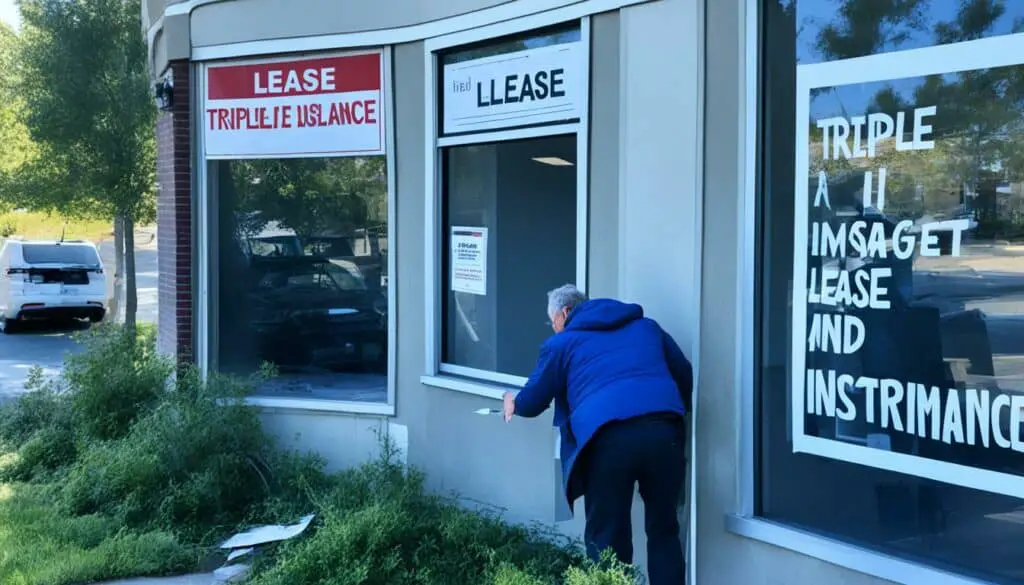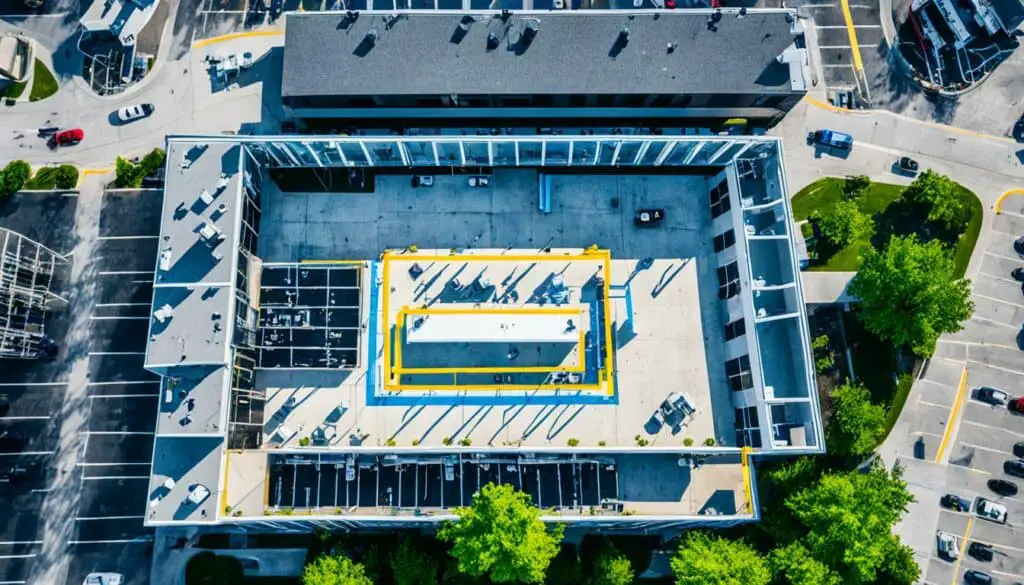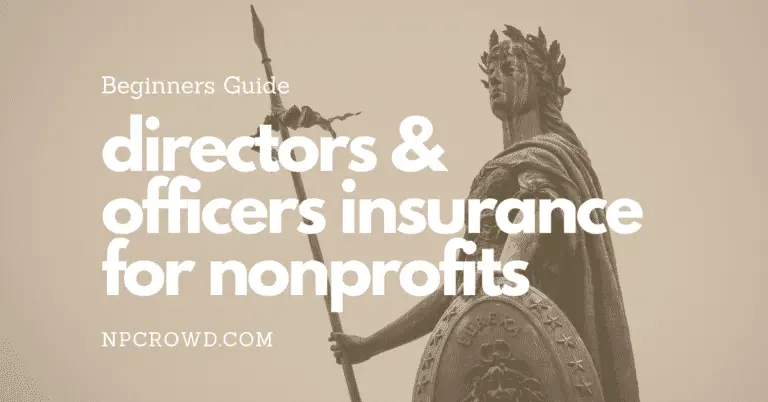Insurance in NNN Leases: What Tenants Need to Know
Disclaimer: This post may contain affiliate links. These links, if used and purchases made, we may earn a small commission. These affiliate programs do not impact the recommendations we make or the resources we refer you to. Our focus is on providing you the best resources for your nonprofit journey.
Are you leasing a property under a Triple Net (NNN) lease? If so, it’s crucial to understand the insurance obligations that come with it. From lease insurance requirements to tenant insurance obligations, navigating the world of insurance in NNN leases can be complex and confusing.In this article, we will explore the specific insurance requirements for landlords and tenants in NNN leases. We will shed light on the importance of liability insurance and discuss how to structure insurance interests to protect both parties’ interests. By the end, you’ll have a clear understanding of what you need to know about insurance in NNN leases.
Key Takeaways:
- Triple Net (NNN) leases require tenants to take on insurance expenses.
- Landlords can require tenants to carry general liability and property insurance.
- Liability insurance is crucial in NNN leases to protect both landlords and tenants.
- Holistic review of lease agreements and consultation with professionals is essential.
- Understanding insurance obligations helps mitigate risks and avoid disputes in NNN leases.
Insurance Requirements in NNN Leases
In NNN leases, landlords have the right to require tenants to carry insurance, particularly general liability insurance and property insurance. It is essential for both parties to understand the insurance requirements and obligations within the lease agreement.
General Liability Insurance
The tenant is typically responsible for providing and maintaining general liability insurance throughout the term of the lease. This insurance coverage protects against claims of bodily injury, property damage, or personal injury that may occur on the leased premises. It is crucial for tenants to obtain adequate general liability insurance to mitigate potential risks and liabilities.
Property Insurance
Tenants may also be required to carry property insurance, which protects against loss or damage to the leased property and any improvements made by the tenant. This insurance coverage helps safeguard the tenant’s investment in the property and ensures that they can rebuild or repair in the event of a covered loss.
Providing a Certificate of Liability Insurance
In addition to obtaining the necessary insurance coverage, tenants are typically required to provide the landlord with a certificate of liability insurance. This certificate serves as proof that the tenant has the required insurance coverage and specifies the policy details, such as coverage amounts and the effective dates.
Landlord’s Public Liability Insurance
The lease agreement may also require the landlord to carry public liability insurance for common areas on the premises. This insurance coverage protects against claims arising from accidents or injuries that occur in shared spaces, such as parking lots or lobbies. The specific requirements for the landlord’s insurance obligations should be outlined in the lease agreement.
By clearly specifying the insurance requirements in the lease agreement, both landlords and tenants can ensure they have the necessary coverage to protect their interests and minimize potential disputes. It is advisable for tenants to consult with an insurance professional to determine the appropriate coverage limits and policy provisions for their specific situation.
| Insurance Requirement | Description |
|---|---|
| General Liability Insurance | Protects against claims of bodily injury, property damage, or personal injury |
| Property Insurance | Protects against loss or damage to the leased property and improvements |
| Certificate of Liability Insurance | Proof of the tenant’s insurance coverage |
| Landlord’s Public Liability Insurance | Protects against claims in shared spaces |

Importance of Liability Insurance
Liability insurance plays a pivotal role in protecting both landlords and tenants in NNN leases. This type of insurance provides crucial coverage for a range of potential risks and liabilities that can arise during the lease term. Let’s explore the significance of liability insurance in NNN leases and how it benefits both parties.
Landlord Protection: Liability insurance safeguards landlords against tenant mistakes or incidents that may lead to property damage or worker’s compensation claims. In such cases, liability insurance ensures that landlords receive the necessary compensation and facilitates the process of addressing any property damage. By having liability insurance, landlords can protect their financial interests and avoid unexpected losses.
Tenant Liability Coverage: Liability insurance also places responsibility on the tenant for any damages they cause beyond normal wear-and-tear. This means that tenants are accountable for incidents that result in property destruction or other liabilities, minimizing the burden on the landlord. By having liability insurance, tenants can fulfill their contractual obligations and ensure they have the means to rectify any damages.
Financial Protection: Liability insurance provides financial protection for both landlords and tenants in the event of property destruction. This coverage minimizes the financial burden on tenants and avoids the need for costly legal disputes. With liability insurance, both parties can have peace of mind knowing that they are financially protected in case of unforeseen circumstances.
Overall, liability insurance plays a critical role in NNN leases, protecting landlords and tenants from potential risks and liabilities. Its importance cannot be overstated, as it helps maintain a fair distribution of responsibilities and ensures that both parties are financially secure. By prioritizing liability insurance, landlords and tenants can confidently enter into NNN leases with the knowledge that they have adequate protection in place.
Structuring Insurance Interests in NNN Leases
In NNN leases, the structure of insurance interests plays a crucial role in protecting the financial and property interests of both the building owner and the lessee. It is vital to establish clear guidelines and obligations regarding insurance coverage in the lease agreement to avoid disputes and ensure compliance. Let’s explore some key aspects of structuring insurance interests in NNN leases.
Building Owner’s Insurance
The lease agreement may require the building owner to be listed as an additional named insured or an additional insured on the tenant’s insurance policy. This ensures that the building owner is directly protected by the tenant’s insurance coverage. By having this arrangement, the building owner can have peace of mind knowing that they are covered in case of any incidents or claims that may arise within the leased property.
Lessee Insurance Obligations
On the other hand, the tenant, or lessee, is typically obligated to maintain specific insurance coverage as outlined in the lease agreement. This may include general liability insurance and property insurance to protect against property damage and potential liability claims. Depending on the terms of the lease, the tenant may also be required to name the building owner as a loss payee or provide proof of insurance coverage in the form of a certificate of insurance.
It is essential for tenants to thoroughly review the lease agreement, especially the insurance-related clauses, and consult with their lawyer to fully understand their insurance obligations. This helps ensure that they comply with the lease terms and have adequate insurance coverage throughout the lease term.
Consulting Professionals
Structuring insurance interests in NNN leases can be complex, and it is advisable for both parties to seek professional guidance. Insurance professionals and attorneys experienced in commercial leasing can provide valuable insights and ensure that the lease agreement aligns with industry standards and legal requirements. Consulting with these professionals can help mitigate risks, avoid potential disputes, and ensure compliance with insurance obligations.

By structuring insurance interests in NNN leases, both building owners and lessees can protect their respective interests and minimize potential risks. Clear guidelines and compliance with insurance obligations contribute to a smoother leasing experience and reduce the likelihood of disputes related to insurance coverage.
Conclusion
In summary, NNN leases significantly impact insurance responsibilities for both landlords and tenants. Landlords must carefully review lease terms to determine the specific insurance requirements and consider how to structure their insurance interests to safeguard their financial and property interests.
Tenants, on the other hand, must comply with the insurance obligations outlined in the lease and ensure they have sufficient liability insurance coverage. This coverage protects them from potential liabilities beyond normal wear-and-tear and provides financial protection in the event of property destruction.
By understanding and meeting their insurance responsibilities, landlords and tenants can effectively mitigate potential risks and avoid disputes in NNN leases. These lease agreements require careful attention to insurance details to ensure that both parties are adequately protected throughout the lease term.
FAQ
What insurance requirements are typically included in NNN leases?
NNN leases commonly require tenants to carry general liability insurance and property insurance. The specific coverage amounts and requirements may vary based on the lease agreement.
Why is liability insurance important in NNN leases?
Liability insurance is crucial for both landlords and tenants in NNN leases as it protects against potential tenant mistakes, property damage, and worker’s compensation claims. It also helps divide the risks and liabilities between parties and provides financial protection in case of property destruction.
Should the building owner be listed as an insured on the tenant’s insurance policy?
The lease agreement may require the building owner to be listed as an additional named insured or an additional insured on the tenant’s insurance policy. This ensures the building owner’s financial and property interests are protected.
What should tenants do to comply with NNN lease insurance requirements?
Tenants should carefully review the lease terms and ensure they have adequate general liability insurance and property insurance coverage throughout the lease term. It is recommended to consult with an insurance professional or attorney to ensure compliance with the lease terms.
How can landlords protect their financial and property interests in NNN leases?
By structuring their insurance interests in the lease agreement, landlords can protect their financial and property interests. This may include being listed as an additional insured or named insured on the tenant’s insurance policy and specifying their insurance requirements in the lease.







